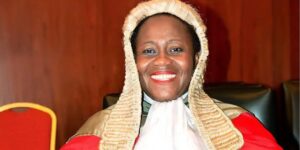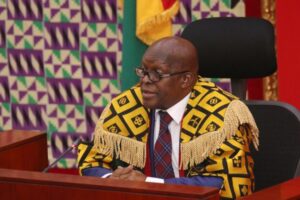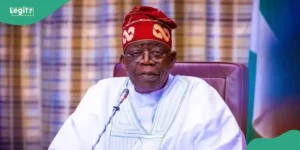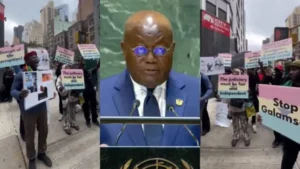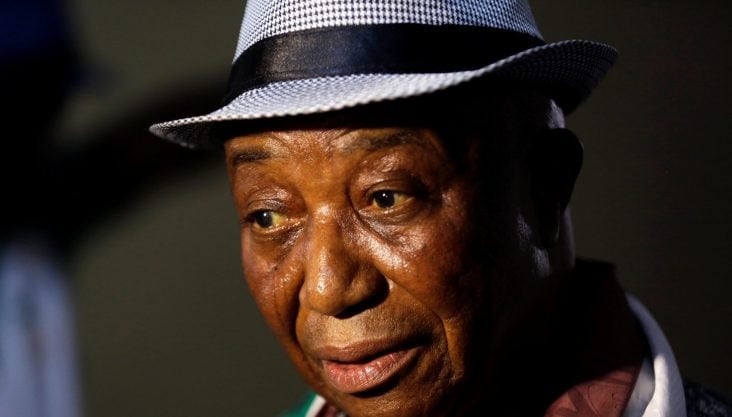
It is less than a month before the Liberian elections, and one opposition party says the ruling party has tried to besmirch their presidential candidate’s campaign.
The Unity Party (UP) issued a statement from spokesperson Mohammed Ali that their presidential candidate, former vice president Joseph Boakai, was illegally tracked using government information for the purposes of claiming he was deathly ill.
“Our intelligence has found that the government of Liberia through the National Security Agency, other state security agencies and privately hired security groups/individuals have been tracking every movement of the UP Standard Bearer with the utmost sinister motive,†said Ali in his statement.
“It, therefore, comes as no surprise that government officials and surrogates of the CDC have been planted to propagate that JNB [Joseph Nyumah Boakai] is ‘sick and will die soon’,†he said.
Liberians go to the polls on 10 October to pick their next president and government leaders.
Tracking every move
UP issued the statement after CCTV recordings of Boakai passing through the airport in Liberia were shared on social media by journalists and supporters of the CDC.
Boakai had recently suspended his campaign, announcing “an impromptu trip in the ECOWAS sub-region for three daysâ€.
However, the visit and the accompanying video has sparked discussions regarding the health of UP’s presidential candidate.
UP condemned the illegal release of the airport video saying it was leaked for propaganda purposes and is an invasion of Boakai’s privacy, which has put his life in danger.
It has also accused “the hierarchy of the CDC with the approbation of President Weah†of ordering attacks against Boakai with an intent to inflict bodily harm and injuries on him.
In response, the Liberian Senate last month voted in favour of a motion mandating its committee on National Security and Defence to investigate the reports and claims made by UP.
Violence and security
The upcoming elections are set to be the first post-war presidential elections that will be carried out after the withdrawal of the United Nations Mission in Liberia, which provided additional security during elections.
The elections are set some months after the 20-year anniversary of the end of the Liberia civil war.
President George Weah has promised to ensure violent-free, credible, and transparent elections and parties have signed on to the Farmington Declaration, which commits them to violence-free elections.
However, recent political clashes and provocative statements have continued to increase the risk of violence.
Since the start of the campaign period, there have been several instances of politicians and partisans of different political parties being attacked.
On 4 August, during the opening of the 2023 Presidential and Legislative campaigns, CDC members were spotted parading with a casket featuring the image of opposition leader Boakai at their party’s headquarters.
In response, UP accused the ruling CDC of “violent provocationâ€. Politicians, including in the ruling party itself, and civil society condemned the act, referring to the actors as “over-exuberant†supporters.
A clash between UP and CDC supporters during a campaign rally in Monrovia on 17 August left several persons injured.
In a statement, UP labelled the CDC as a “recipe for chaosâ€, while the CDC has accused the opposition of deliberately scheduling their rally to provoke conflict, claiming that they had adjusted their own campaign schedule to avoid clashes.
A man believed to be a member of CDC was reportedly stabbed in Nimba on 21 August due to his political stance.
The Collaborating Political Parties (CPP) — an opposition coalition comprising the Alternative National Congress (ANC) of Alexander Cummings and the Liberty Party, founded by the late Charles Brumskine — has warned against the destruction of its campaign posters and billboards and called for an immediate investigation by the National Elections Commission (NEC).
“The trend of politically charged violence will most likely continue. This is due — in part — to the fact that our security apparatus is not seen to be neutral,†Joshua Kulah, a lawyer and political science lecturer at United Methodist University in Liberia, tells The Africa Report.
“Additionally, government institutions, which govern integral aspects of the campaign, like approval for putting up billboards and approval of scheduling campaigns, are generally seen to be pro-ruling party, thus, we might also see electoral violence as a pushback to that belief,†he says.
This perception of biased security agencies isn’t unfounded, however. Earlier this year, members of the security apparatus wore CDC t-shirts while providing security at a CDC rally.
Electoral security financing
Security financing is also a concern. In July, Bomi County Senator Edwin Melvin Snowe urged the government to raise budgeted funding for election security to counteract threats of electoral violence. He also suggested that the government give special training to security forces.
Despite this, additional funds have not been provided, and the NEC announced earlier this month that there is inadequate financing for a possible run-off election in the 2023 general elections.
This shortage, according to the NEC, is due to the ministry of finance and development planning providing $3m less than the election amount budgeted by the commission.
In March, the ministry of internal affairs developed an early warning and reaction system to reduce election violence.
The government said the system can identify hazards and threats to peace and security, as well as raise red flags for policymakers and relevant institutions to respond in real time, but no indications have been made that it has been useful during this election season.
“The NEC should request from all political parties and independent candidates their plans for campaigning and ensure that their respective schedules do not come in conflict,†says the Election Coordinating Committee (ECC), a leading civil society network promoting electoral integrity and democratic governance in Liberia, in their recommendations.
The international community should “seek collective punitive actions against political parties or independent candidates who wilfully violate the election laws of Liberia, the campaign regulations and the Farmington Declaration,†it says.
